10 Best Intimate Tips For Women To Keep Them Healthy
By Dr. Charmi Shah +2 more

Get,

to manage your symptom
Get your,


4 Cr+ families
benefitted

OTP sent to 9988776655



You’ve successfully subscribed to receive
doctor-approved tips on
Whatsapp

Get ready to feel your best.

Hi There,
Download the PharmEasy App now!!


Register to Avail the Offer
Send OTPBy continuing, you agree with our Privacy Policy and Terms and Conditions

Hi There,
Sign up on PharmEasy now!!
Trusted by 4 crore+ families

OTP sent to 9988776655



You have unlocked 25% off on medicines




Code: NU25

Comments


Leave your comment here
By Dr. Charmi Shah +2 more
Table of Contents
In today’s fast-paced world, many women juggle professional and personal responsibilities, often overlooking intimate hygiene. However, neglecting feminine hygiene can lead to vaginal infections, urinary tract infections (UTIs), and even impact fertility and reproductive health1.
Women still shy away from talking about their personal care regime and many are even unaware of the basic vaginal care practices, although our intimate health is a key part of our overall well-being. These hygiene habits should start early, ideally from the onset of menstruation, and should be followed consistently throughout life.
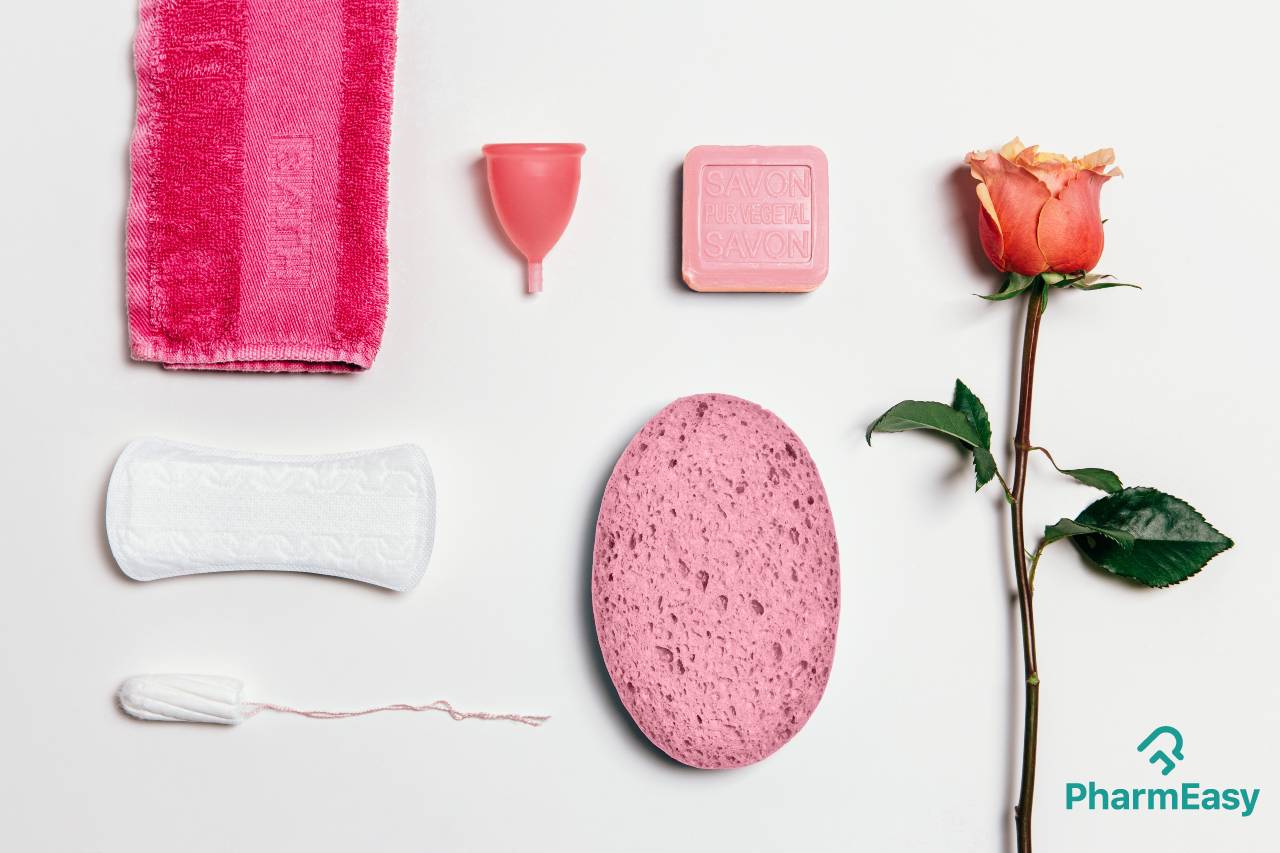
Here’s a practical and evidence-backed guide to help women maintain their intimate hygiene and avoid common health issues.
Here are some essential care tips for females to take preventive measures and maintain healthy intimate care.

Regular bathing is essential for everyone to maintain overall hygiene. The habit of skipping baths can lead to various skin infections, such as dry skin and fungal infections. However, avoid excessive scrubbing of the intimate area, especially with soaps, as it may disrupt the natural flora2.

Despite daily bathing, it is important to clean your private parts on a regular basis using water. Especially during your period or in hot and humid weather, it’s advisable to gently rinse the vulva (outer genital area) 2–3 times a day. Clean the vulva gently with plain water or a mild, pH-balanced cleanser if needed.
Gynaecologists suggest avoiding douching or inserting water or cleaning agents inside the vagina, as it is self-cleaning and needs no internal washing3.
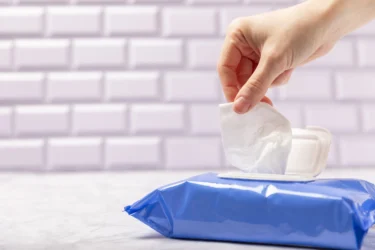
You should take extra care of your vaginal area throughout the day. After urination and bathing (as well as during periods), you must clean your vaginal area. Always wipe from front to back- vagina (front) to the region towards the anus (back)4. This will help to prevent urinary infections. You should do the same once you have had intercourse as well to clean vaginal fluids. Also, make sure to wash your hands with soap after cleaning your private parts.
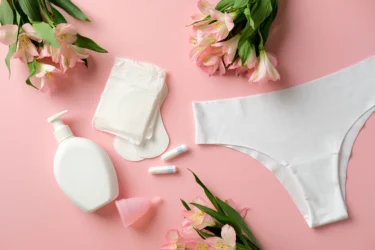
The most distressing duration for a female is during her periods. Every woman wants to feel hygienic, comfortable, and odourless at that time of the month. Therefore, you must change your sanitary pads (every 4 to 8 hours), tampons (maximum up to 8 hours), and panties (every day) regularly to maintain menstrual hygiene. If you use the menstrual cups, then make sure to sterilise (with boiling water) them before and after their use every 6 to 12 hours4,5.
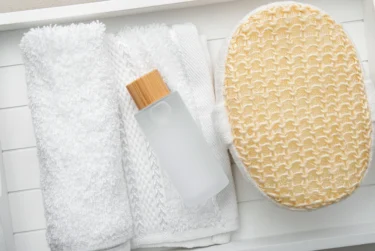
Soap has a higher pH than vaginal skin, which is around 3.8 to 5.06. This makes the intimate area very sensitive and can lead to dryness and soreness of the vagina. Therefore, if needed, always ensure to use a gentle, hypoallergenic cleanser or intimate wash with a balanced pH (only for the outer vulva region)2.
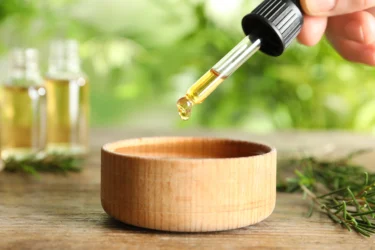
Natural ingredients like lactic acid help maintain the pH balance7. Thus, you may choose lactic acid-based intimate washes to help maintain the vaginal microbiome. However, be sure to use only fragrance-free options.
In addition to this, natural essential oils such as tea tree oil can be helpful in small amounts, but only use products that are clinically tested and safe for vaginal use8.
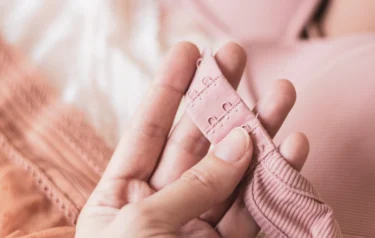
Tight-fitting clothes generate a moist and warm environment inside the body that leads to fungal infection. Thus, it is better to use loose cotton undergarments that allow airflow9. Also, make sure to change your clothes and underwear since they may get sweaty after a sport or physical activity.

No matter how good you are at holding your urine, you may sometimes have to use public toilets. You are at a higher risk of getting the infection if you are using public toilets frequently. Therefore, you should always be cautious while using them9. There are small and portable disinfectants as well as toilet seat sanitisers available for women to use in public restrooms to avoid infections.

Routine health checkups with your gynaecologist are necessary to maintain health and detect infection early on. A few specific tests should be done regularly as based on individual risk, such as pelvic exams, breast exams, Human Papillomavirus tests (PAP smear), and other screenings for common sexually transmitted infections10.
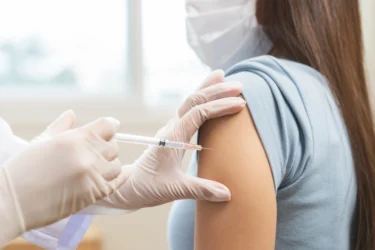
Regular vaccine shots for females can safeguard women against certain viruses like the HPV (responsible for cervical cancer) and the Hepatitis B virus (HBV) (responsible for Hepatitis B infection).
The HPV vaccine can prevent up to 90% of cervical cancer cases. It’s ideal before the onset of sexual activity but can be taken up to age 45 (as advised)11. Hepatitis B vaccine is also vital, especially for women planning pregnancy or those sexually active12.
Also Read: Breast Cancer: Foods to Have and Avoid During and After Treatment
Good intimate feminine hygiene is a necessity to maintain overall health. It helps protect against infections, improves comfort during periods, reduces odour, and supports reproductive wellness. Make these tips part of your daily routine and teach young girls to learn them early on. Most importantly, don’t hesitate to talk openly with your gynaecologist about any discomfort, discharge, or questions.
Also Read: Home Remedies For Vaginal Itching
Disclaimer: The information provided here is for educational/awareness purposes only and is not intended to be a substitute for medical treatment by a healthcare professional and should not be relied upon to diagnose or treat any medical condition. The reader should consult a registered medical practitioner to determine the appropriateness of the information and before consuming any medication. PharmEasy does not provide any guarantee or warranty (express or implied) regarding the accuracy, adequacy, completeness, legality, reliability or usefulness of the information; and disclaims any liability arising thereof.
Comments

Leave your comment...

View all comments(1)
You may also like
Thank you for the healthful tips. They serve to save a life. These should not be neglected for a healthy living.